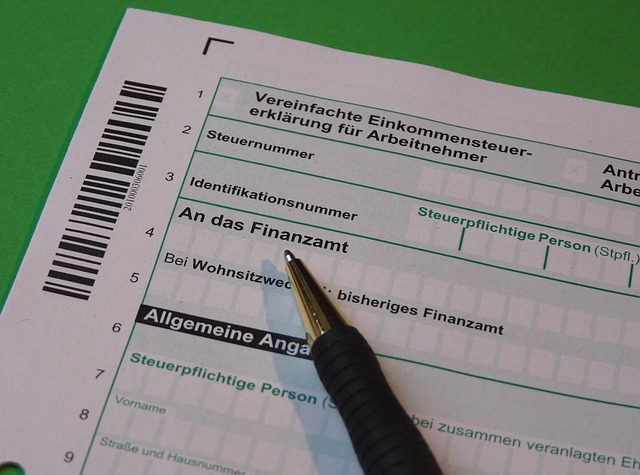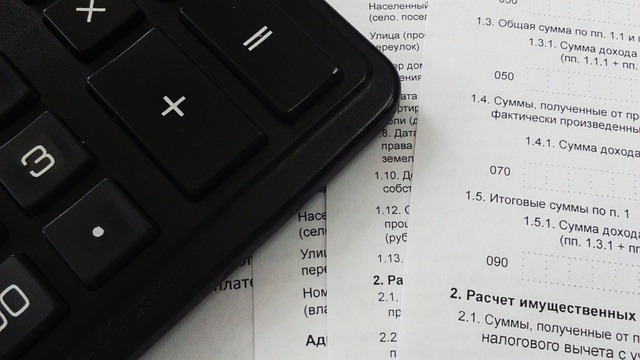Navigating UK Tax Compliance: The Essence of Precision in Tax Document Translations
1. Accuracy and Expertise: A translation service for UK tax documents must possess accurate knowledge of both UK tax law and the target language to ensure precise translations. Any discrepancies can lead to legal repercussions or financial penalties……..

1. Accuracy and Expertise: A translation service for UK tax documents must possess accurate knowledge of both UK tax law and the target language to ensure precise translations. Any discrepancies can lead to legal repercussions or financial penalties.
2. Legal Adherence: The translators should be up-to-date with the latest changes in UK tax legislation to maintain compliance throughout the translation process.
3. Cultural Nuances: Understanding cultural contexts is essential, as it affects how legal and financial terms are interpreted and conveyed in different languages.
4. Use of Technology: Advanced software tools like translation memory and glossaries should be employed to maintain consistency across translations and improve efficiency.
5. Quality Assurance: The service should provide timely, high-quality translations that faithfully represent the original documents' intent, which is crucial for international business engagements, compliance, and audits.
6. HMRC Standards: The translation provider must adhere to the standards set by Her Majesty's Revenue & Customs (HMRC) to ensure that all translations are compliant with UK tax regulations.
7. Collaboration and Communication: Effective collaboration platforms can enhance teamwork among translators, proofreaders, and project managers, leading to better quality translations.
8. Confidentiality and Security: Given the sensitive nature of tax documents, the translation service must ensure that all data is handled with strict confidentiality and in compliance with relevant data protection laws.
9. Client Support and Consultation: A responsive client support system should be available to address any queries or concerns regarding the translation process, legal terms, or deadlines.
10. Proofreading and Quality Control: Rigorous proofreading and quality control processes are essential to catch any errors or inconsistencies before the final document is delivered to the client.
In summary, a reliable UK tax document translation service should combine specialized human expertise with advanced technology, maintain strict confidentiality, ensure compliance with HMRC standards, and provide consistent, accurate translations that reflect both the linguistic and cultural contexts of the original content.
When navigating the complexities of international business, the precision and accuracy of UK tax document translations become paramount. This article delves into the critical role of professional translation services in accurately conveying financial information across languages, ensuring compliance with UK legal standards. We explore the types of tax documents commonly translated, best practices for maintaining integrity in financial translation, and how cultural nuances can influence translation accuracy. Additionally, we provide insights on strategies to guarantee timely and dependable translations of tax documentation, culminating in guidance on selecting a trusted translation service provider for your UK tax document needs.
- Understanding the Necessity for Precise UK Tax Document Translations
- The Role of Professional Translation Services in Handling Tax Documents
- Common Types of Tax Documents Requiring Translation for UK Operations
- Legal and Compliance Considerations in Translating Tax Documents in the UK
- Best Practices for Translating Financial and Tax-Related Information in the UK Context
- The Impact of Cultural Nuances on UK Tax Document Translation Accuracy
- Strategies for Ensuring Timeliness and Reliability in Tax Document Translations
- Selecting a Trusted Translation Service Provider for UK Tax Documents
Understanding the Necessity for Precise UK Tax Document Translations

Navigating the complexities of UK tax documents requires a high level of precision and expertise, particularly when these documents need to be translated into another language. Tax Documents UK translation services play a critical role in this context, bridging language barriers while ensuring compliance with legal standards and maintaining the integrity of financial data. For businesses or individuals operating across borders, accurate translations of tax forms, statements, and correspondences are indispensable. They not only facilitate communication with UK tax authorities but also ensure that all parties involved have a clear understanding of their fiscal obligations and rights. Inaccurate translations can lead to costly mistakes and legal complications, emphasizing the importance of engaging professional services. These services employ expert linguists with a deep grasp of both the target and source languages, as well as a thorough understanding of UK tax legislation and terminology. This dual expertise guarantees that all nuances are accurately conveyed, ensuring that translations stand up to scrutiny by regulatory bodies and are accepted without question. By choosing reputable Tax Documents UK translation services, clients can navigate their tax obligations with confidence, regardless of linguistic or geographical boundaries.
The Role of Professional Translation Services in Handling Tax Documents

When navigating the complexities of tax compliance and reporting, precision and accuracy are paramount. In the UK, where tax legislation is both intricate and specific to local regulations, professional translation services play a critical role in ensuring that tax documents are not only conveyed correctly but also comply with legal standards across different languages. These services specialise in translating UK tax documents, providing linguistic expertise alongside industry-specific knowledge. They offer meticulous translation of financial records, tax returns, and other related documentation, ensuring that every figure, term, and nuance is accurately represented in the target language. This level of exactitude is essential for multinational companies, individual taxpayers, and legal firms that operate within or have connections to the UK, as it guarantees the integrity of financial information and adherence to tax laws. By leveraging the expertise of seasoned translators with a deep understanding of both language and taxation, these translation services are indispensable tools for maintaining transparency and compliance in international tax affairs.
Common Types of Tax Documents Requiring Translation for UK Operations

In the realm of international business and finance, the exchange of tax documents between entities in the UK and abroad is a routine yet critical operation. UK translation services play a pivotal role in ensuring that tax-related documentation is accurately translated to facilitate smooth cross-border transactions. Common types of tax documents that often require professional translation include Corporation Tax Returns, which detail a company’s income, expenses, and taxable profits; these are essential for entities with operations or investments in the UK. VAT (Value Added Tax) invoices and records are another frequent requirement, as they document the tax-inclusive prices of goods or services sold by businesses to other businesses, or to individuals when certain conditions are met. These documents not only serve compliance purposes but also enable accurate VAT reclaims for non-UK entities. Additionally, Payroll information, which includes employee salaries, deductions, and tax contributions, must be translated to comply with the reporting standards of both the UK and the employees’ home countries. Such translations ensure that all parties have a clear understanding of the financial obligations and entitlements. Furthermore, Transfer Pricing Documents, which govern the pricing of transactions between related parties, require meticulous translation to adhere to international regulations and to maintain transparency in the flow of funds between entities within diverse jurisdictions. Tax Document UK translation services must be proficient not only in the linguistic nuances but also in the specific tax terminology unique to the UK’s complex tax code to provide translations that stand up to scrutiny from regulatory bodies. This level of expertise is indispensable for multinational corporations, law firms, and individuals navigating the intricacies of UK taxation.
Legal and Compliance Considerations in Translating Tax Documents in the UK

Navigating the intricacies of UK tax documents requires a profound understanding of both the legal framework and the nuances of language. Translation services specialising in Tax Documents UK must possess expertise not only in linguistic precision but also in compliance with HM Revenue & Customs (HMRC) standards. The translators must be adept at converting financial terminology, tax legislation, and accounting principles from one language to another, ensuring that the translated documents reflect the original content accurately. This is crucial as any discrepancies could lead to legal complications or financial repercussions for both the entity submitting the documents and the taxpayer. Additionally, staying abreast of the latest changes in UK tax laws is imperative, as these laws are subject to frequent updates and amendments. High-quality Tax Documents UK translation services must, therefore, employ professionals who are not only fluent in the source and target languages but also well-versed in the relevant legal and compliance requirements to provide reliable translations that withstand scrutiny by regulatory bodies. This commitment to excellence ensures that businesses and individuals can navigate their tax obligations with confidence, regardless of linguistic barriers.
Best Practices for Translating Financial and Tax-Related Information in the UK Context

When engaging with tax document translations in the UK, precision and conformity to legal standards are paramount. The best practice for translating financial and tax-related information begins with selecting a translation service that specialises in legal and financial documentation. UK translation services should possess a thorough understanding of both the source and target languages, as well as the complex terminologies inherent in UK tax law. These professionals must be adept at translating intricate terms, accounting concepts, and legal jargon accurately, ensuring that every nuance is conveyed without alteration.
To ensure the highest level of accuracy, translation teams should include subject matter experts familiar with the UK’s tax system and regulatory environment. They must also adhere to industry-specific guidelines such as the Association of Translation Companies (ATC) code of practice or similar standards. Utilising translation memory software and glossaries tailored to financial translations further enhances consistency and reliability across all documents. By combining expertise, technology, and a commitment to quality, UK translation services can provide tax documents that stand up to scrutiny from regulatory bodies, legal professionals, and financial auditors. This meticulous approach not only upholds the integrity of the original content but also facilitates seamless communication and compliance in an international context.
The Impact of Cultural Nuances on UK Tax Document Translation Accuracy

Navigating the complexities of UK tax documents often necessitates a nuanced understanding that extends beyond mere linguistic translation. Professionally managed translation services must be adept at interpreting and accurately conveying the cultural subtleties inherent in these documents. The impact of cultural nuances on UK tax document translation accuracy cannot be overstated. Tax laws, financial terminology, and regulatory language are not static; they evolve and can vary significantly across different regions within the UK, influenced by historical, legal, and social factors. A competent translation service must therefore employ translators with a deep grasp of both the source and target languages, as well as a comprehensive understanding of the cultural contexts and tax regulations specific to the UK. This ensures that every nuance, from idiomatic expressions to the subtleties of legal language, is accurately represented, thereby maintaining the integrity and compliance of the translated documents. Inaccuracies in this regard could lead to misinterpretation by authorities, penalties, or even legal complications, underscoring the critical importance of precision and expertise in UK tax document translations.
Strategies for Ensuring Timeliness and Reliability in Tax Document Translations

When navigating the complexities of tax document translations in the UK, timeliness and accuracy are paramount. To ensure that tax documents such as VAT returns, corporation tax computations, and self-assessment forms are accurately translated, UK translation services must employ a multifaceted approach. Firstly, leveraging a team of professional translators with expertise in finance and tax law is crucial. These specialists undergo rigorous training to stay abreast of the latest legislation changes, ensuring that the translations reflect the most current regulations. Secondly, implementing advanced translation technology, such as translation memory software and real-time collaboration tools, can significantly enhance the efficiency of the translation process. This technology not only streamlines workflow but also maintains consistency across all documents by remembering previously translated content. By combining human expertise with technological prowess, these UK translation services can provide timely and precise translations, which are critical for compliance, audits, and cross-border business operations. This commitment to quality and speed is what sets top-tier tax document translation services apart in the UK market.
Selecting a Trusted Translation Service Provider for UK Tax Documents

When engaging with a trusted translation service provider for UK tax documents, precision and expertise are paramount. The translated content must align with Her Majesty’s Revenue & Customs (HMRC) standards to avoid discrepancies that could lead to legal complications or financial penalties. Opting for a service provider with a proven track record in handling UK tax documents is essential. These providers often specialize in legal and financial translations, ensuring that terminology is accurate and industry-specific jargon is correctly conveyed. Look for translation services that are certified and accredited by relevant authorities, as this guarantees a higher level of quality and reliability. Additionally, they should be well-versed in the nuances of UK tax law and have a robust understanding of both the source and target languages to provide translations that are not only literal but also culturally appropriate. With the right translation service provider, you can navigate the complexities of tax documentation with confidence, knowing that your documents are accurately represented across different linguistic boundaries.
In the complex interplay of legal and financial obligations, precise UK tax document translations stand as a cornerstone for compliance and cross-border communication. This article has delineated the critical importance of leveraging professional translation services specialising in tax documents to navigate the intricacies of multilingual operations within the UK. Recognizing the diverse types of tax documents that frequently necessitate translation, from corporation tax returns to VAT declarations, and addressing the legal and compliance imperatives, businesses are now equipped with a deeper understanding of best practices for maintaining accuracy while balancing the urgency of timely translations. By selecting a trusted translation service provider, entities can confidently bridge language barriers and ensure that their UK tax documents are not only understood correctly but also resonate with cultural nuances. In doing so, they safeguard their financial integrity and operational success in an increasingly globalised marketplace.




